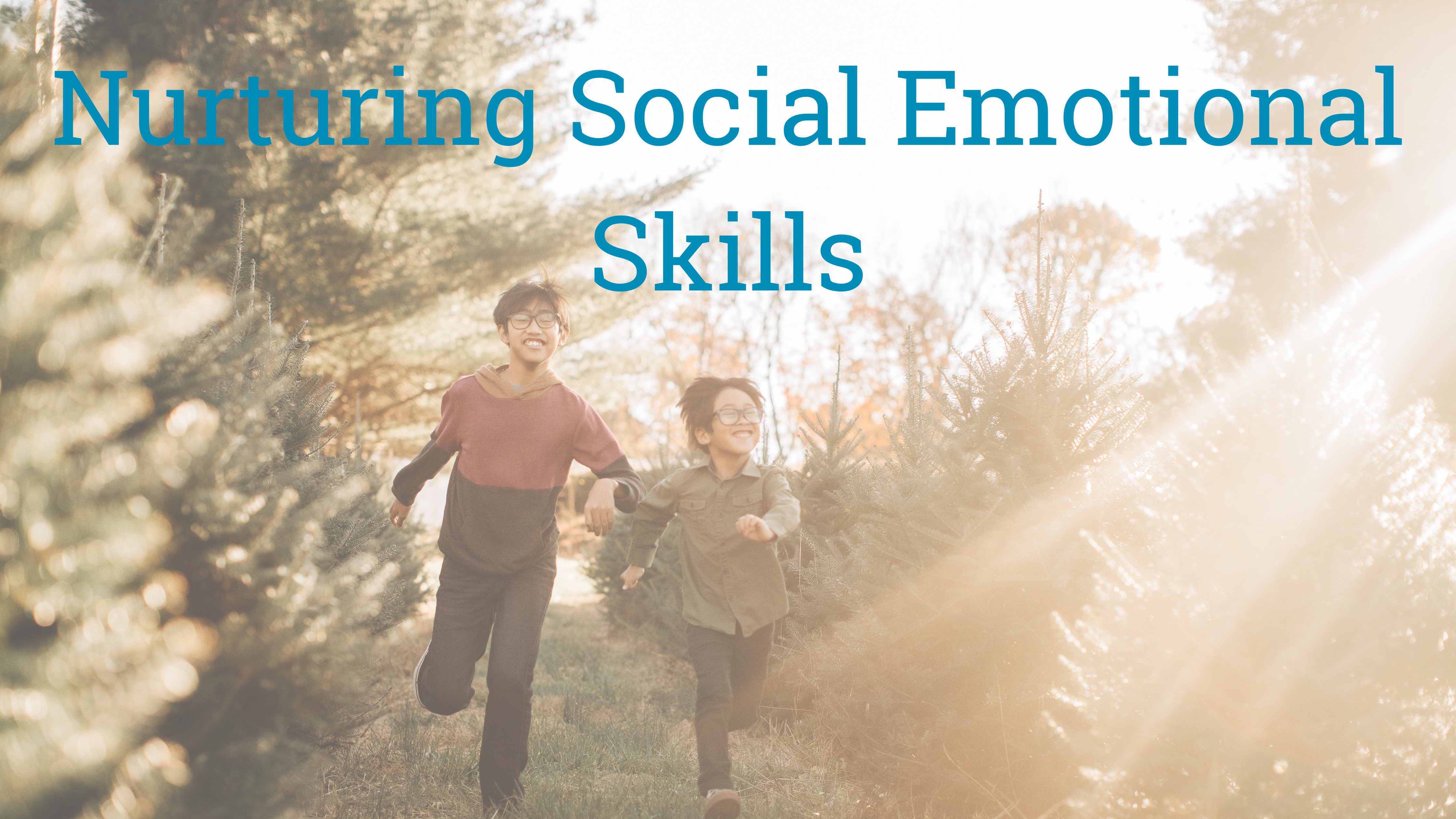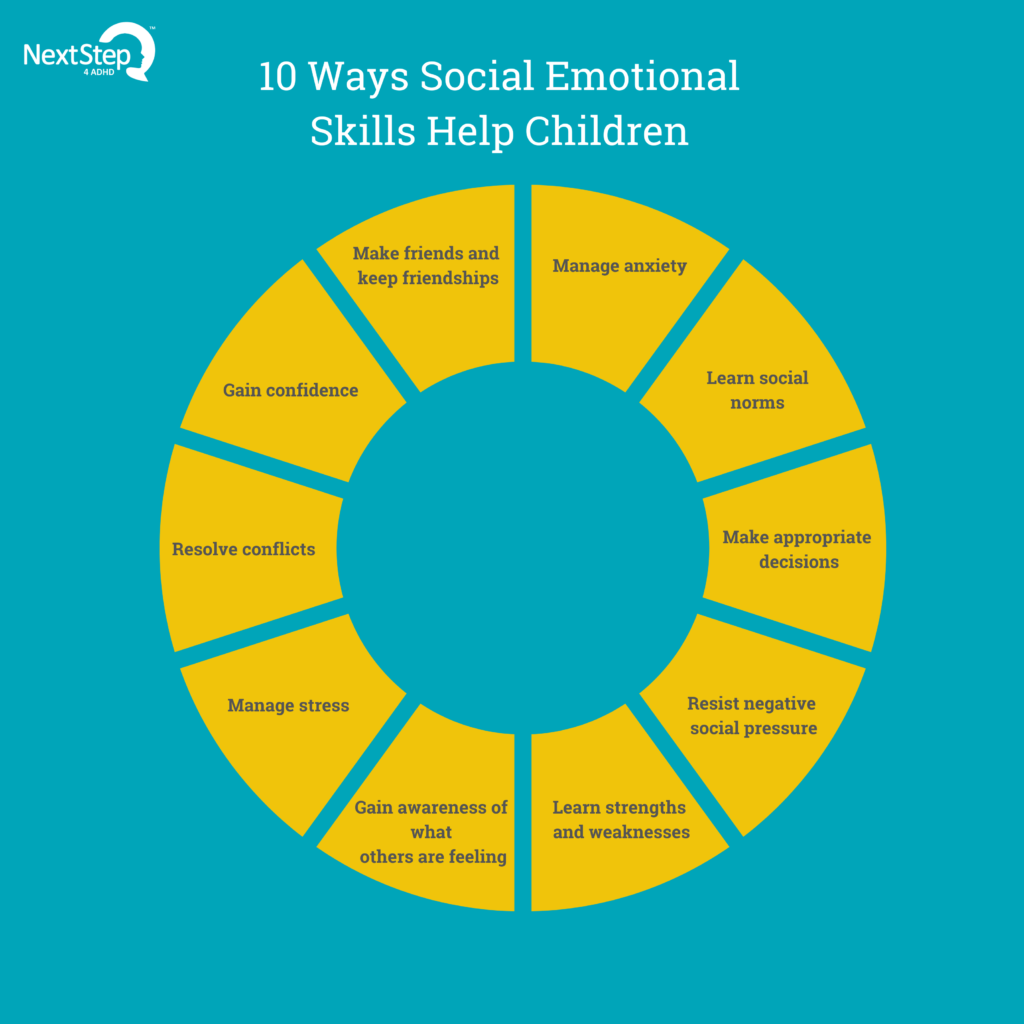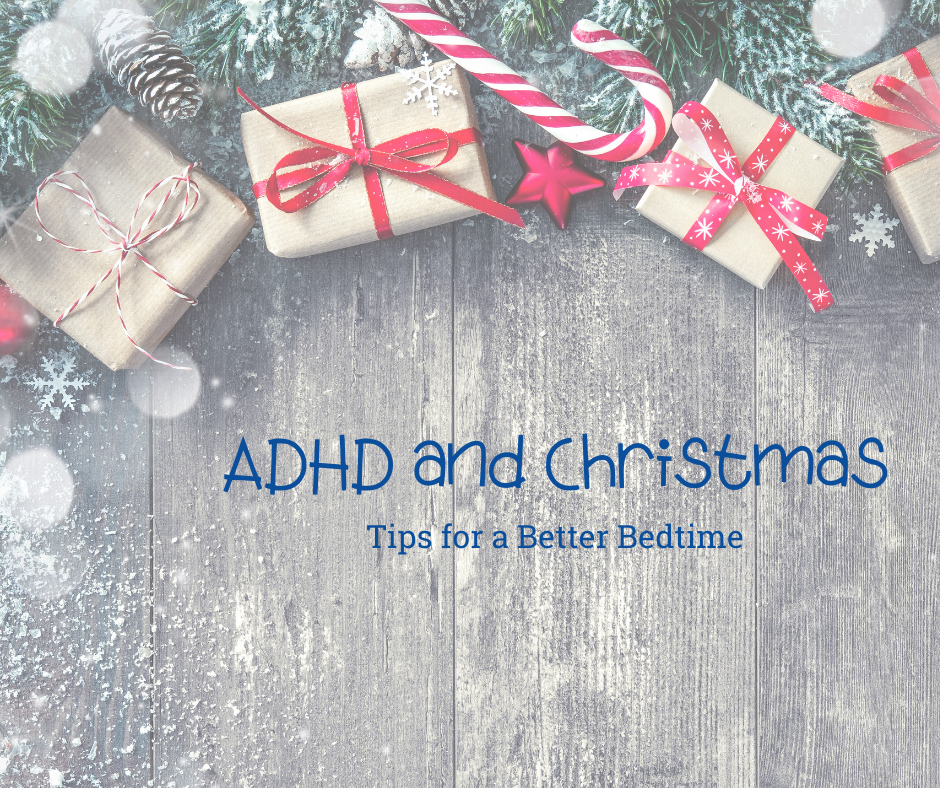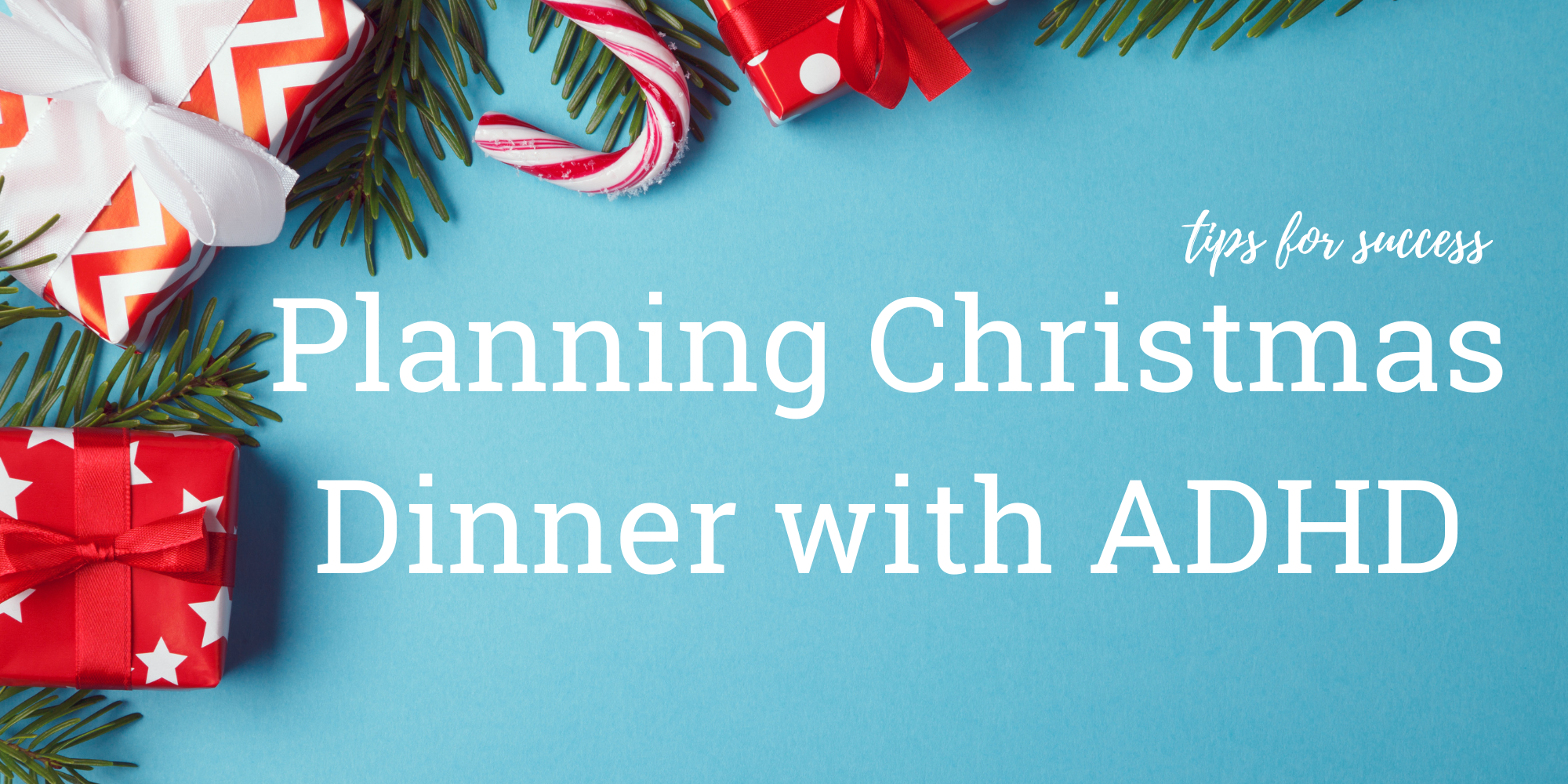
Finding the Right Support: Child Psychiatrist in Louisville, Kentucky
Parenting a child with ADHD can be both rewarding and challenging…
Parenting a child with ADHD (Attention Deficit Hyperactivity Disorder) can be both rewarding and challenging. You’ve likely witnessed your child’s incredible energy, creativity, and unique perspective on the world, but you may also have experienced the difficulties that come with managing their symptoms. If you’re looking for expert guidance and support, the good news is that Louisville, Kentucky, has a robust community of child psychiatrists ready to help you and your child thrive. Here are the tips you need for finding the right child psychiatrist in Louisville, Kentucky.
Understanding ADHD
ADHD is a neurodevelopmental disorder that affects both children and adults. It’s characterized by symptoms like inattention, hyperactivity, and impulsivity. Diagnosing and managing ADHD requires specialized knowledge and skills, which is where child psychiatrists come into play.
Why Choose a Child Psychiatrist in Louisville, Kentucky?

Louisville is home to a growing number of child psychiatrists who specialize in diagnosing and treating ADHD in children. Here are some key reasons why seeking their help is beneficial:
- Expertise: Child psychiatrists have extensive training in child and adolescent mental health. They understand the nuances of diagnosing and treating ADHD, tailoring their approaches to each child’s unique needs.
- Comprehensive Evaluation: Child psychiatrists take a holistic approach to assess your child. They not only evaluate the symptoms of ADHD but also consider any co-occurring conditions, environmental factors, and family dynamics that may impact your child’s well-being.
- Medication Management: In some cases, medication may be part of an ADHD treatment plan. Child psychiatrists are well-equipped to prescribe and manage medications, ensuring your child’s safety and effectiveness. You can learn more about medication management in our ADHD Medication Myth Series:
- Behavioral Interventions: Child psychiatrists can provide guidance on evidence-based behavioral interventions and strategies to help manage ADHD symptoms, both at home and in school.
- Support for Families: Managing ADHD can be challenging for the whole family. Child psychiatrists in Louisville offer guidance, resources, and support to parents and caregivers, helping them understand and cope with their child’s condition.
- Collaborative Care: Child psychiatrists often work closely on our multidisciplinary team, such as psychologists, therapists, and ADHD coaches, to provide a comprehensive and coordinated treatment plan for your child. This means that everything you need is all under one roof.
Finding the Right Child Psychiatrist in Louisville, Kentucky
When searching for a child psychiatrist in Louisville, consider the following steps:
- Ask for Recommendations: Reach out to your pediatrician, school counselor, or support groups for recommendations. They may have valuable insights into trusted professionals in the area.
- Research Credentials: Ensure the psychiatrist is board-certified and has experience in child and adolescent psychiatry.
- Consultation: Schedule a consultation to meet with the psychiatrist, discuss your concerns, and evaluate their approach and compatibility with your child.
- Communication: Open and effective communication with the psychiatrist is key. You should feel comfortable discussing your child’s needs and asking questions.
Why NextStep4ADHD?
NextStep4ADHD is committed to providing comprehensive resources and support for families dealing with ADHD. We understand the importance of child psychiatrists in the management of this condition and aim to connect parents and caregivers with qualified professionals who can make a significant difference in their children’s lives.
Our team page offers a user-friendly interface that allows you to search for child psychiatrists in your area who specialize in ADHD. We believe that access to the right healthcare professionals is a critical step in the ADHD management journey.
Raising a child with ADHD can be a rewarding journey with the right support system in place. In Louisville, Kentucky, you have access to a dedicated community of child psychiatrists who can provide expert guidance and assistance. Remember that you’re not alone in this journey, and with the help of a knowledgeable child psychiatrist, you can empower your child to thrive and reach their full potential. Don’t hesitate to seek the support your family needs to make the journey with ADHD a successful one.
Click here to schedule an appointment with us today to explore the benefits of multidisciplinary care here in Louisville, Kentucky.
Learn More
What Are Social Emotional Skills and How Do You Nurture Them?
Children with ADHD may struggle with social skills, but thankfully, social emotional skills can be developed. This means that there are many ways to continue to nurture these skills at home.
What Are Social Emotional Skills?
Social emotional skills help us connect to others. Social emotional development begins at birth; babies start learning how to connect to others from the very beginning. As babies and children continue to develop these skills, they’ll eventually use this skill set to:
- Manage emotions
- Build healthy relationships
- Feel empathy
Here are three examples of social emotional skills:
- A child recognizes that his friend is sad, and then he asks if they’re ok
- A child learns to express himself differently depending on his audience: friends, teachers, or parents, etc.
- You understand your own thoughts and feelings, and you can use this information to relate to others
Developing social emotional growth takes time. Even though social emotional development starts in infancy, it continues into and throughout adulthood. Early interactions with family, caregivers, and friends have the biggest impacts on development, but every new interaction (whether that’s meeting a new co-worker or raising a child) continues to shape our social emotional growth.
Why Social Emotional Skills Matter
Children with well-developed social-emotional skills are more likely to excel in school — and later in their career. Social-emotional skills help kids in many ways.

ADHD and Social Emotional Skills
Children (and adults for that matter) with ADHD may struggle with social emotional skills. According to a study published in the journal Child and Adolescent Psychiatry and Mental Health, children with poor social emotional skills are more likely to miss school days.
Social emotional skills are developed when children witness the social world – and that includes both online or in person – but how can these skills be further shaped? Here are a few strategies for sharpening your child’s skill set at home:
1. Model the Language
Sometimes talking through things out loud can help model the language that supports social emotional skill growth. Here are a few examples:
- Validate any struggles that your child has and express empathy (e.g., “That must be hard” or “I hear you.”)
- Use reflective listening when your child expresses any social or emotional difficulties (this helps them feel heard)
- Repeat or reiterate what your child says to demonstrate that you understand their feelings accurately (e.g. “I am sad that you feel lonely.”)
You can learn more phrases to use here in this post about growth mindset.
2. Reflect on Social Settings
You can engage your child in conversations about social settings. This includes social settings in TV shows or social settings in online environments too. Your child can continue to grow and develop social skills in online classes and multi-player collaborative video games.
The following questions can promote social emotional growth:
- What’s going on in the class/game/group?
- What are the unspoken rules? How do you know that these are the rules?
- What do you find interesting about this class/game/group?
- What do you know about these people (classmates/other players)?
- Who is in this group/game/class?
- How do you step into other player’s shoes?
- How do you react to other players’ messages and/or behaviors?
- How is everyone else behaving, and how do you compare?
If you’re watching a TV show together, you can ask similar questions and use the show as an opportunity to talk about interpersonal relationships with others.
3. Practice Building Friendships
Making friends is not passive, and the process can be made even more difficult when schools are virtual and social outings aren’t as frequent as they used to be. Making friends requires:
- Meeting someone
- Learning about them (their likes, dislikes, etc.)
- Engaging in small talk
- Engaging in one-on-one activities like playdates
Social distancing has made this process much more difficult. You can help your child practice building friendships through:
Practicing Small Talk
Your child can engage in small talk at the dinner table with family. Small talk is one of the key building blocks of starting a friendship, and it also helps strengthen active listening. In addition to practicing small talk at dinner, you may suggest that your child engages in small talk with other classmates (when appropriate; some virtual classes make use of breakaway groups, which is a good opportunity to practice small talk). You might also suggest that your child calls a cousin or other family member to practice small talk over the phone.
Playing with Puppets
For younger children, playing with puppets can be a great way to work on social emotional skills. Puppet play can introduce your child to emotional words (e.g., happy, angry, sad) while allowing your child a way to talk about and work through problems.
4. Try Thinking Out Loud
Parents can model problem solving and emotional regulation skills by talking through their own problems out loud. For example, you might say out loud: “Oh no! My favorite shoes have a hole in them. I’d better wear a different pair today so my feet don’t get wet from the rain.” This helps to model appropriate ways to deal with frustration.
5. Make Time for Bedtime Stories
Bedtime stories aren’t just for relaxing your child and helping them fall asleep. Reading to your child can enhance his or her vocabulary, improve language skills, and boost emotional regulation. You can help your child develop social emotional skills by talking about the story. Ask:
- What should the character do?
- How do you think this character feels?
- What would you do if you were in this character’s position?
6. Plan a Game Night
Game nights are fun, but they also help support social emotional skills too. Games — including both board games and outdoor play games — teach children how to take turns, how to cooperate with others to reach a common goal, how to cope with frustrations, and how to enjoy playing even if you’re not winning.
Social Emotional Development and ADHD: Take Your Next Steps
Are you searching for more strategies to help your child? In addition to nurturing social emotional skills at home, your child may benefit from professional care.
We’re proud to offer a multidisciplinary and holistic approach to you and your child’s mental health needs. Our team of providers are experts when it comes to effective medication management, parent coaching, and positive parenting strategies to motivate and encourage children with ADHD.
To make an appointment, call us at 502-907-5908. You can also request an appointment here.
Learn More
It’s Time for College Applications: Tips for Teens with ADHD
Applying to college is stressful for all teens, but ADHD can make the application process even more stressful.
Here at Next Step 4 ADHD, we’re committed to helping manage your teen’s ADHD so s/he can thrive in all of his/her endeavors — including applying for college. In this article, we’ll cover practical strategies for making the most of your college application process.
1. Start the College Application Process Early
Some universities had early deadlines that quickly approaching (November), but there are still plenty of colleges still accepting applications. Another wave of deadlines isn’t until January, which means now is one of the busiest college application seasons for your teen.
Most colleges’ deadlines fall between November and February. The deadline for incoming freshmen at the University of Louisville is as late as February 15. If your teen is interested in a particular school, be sure to write down all deadlines on a family calendar.
You can find a list of deadlines for the top 50 colleges and universities here. Be sure to confirm dates on the college website too.
2. Create a Top List of Colleges

Even though it’s college application season, you don’t need to apply to every school. Instead of randomly applying, create a well-curated list of six to 12 universities or colleges. Organize your list in terms of which ones have the earliest deadlines to make sure those are taken care of first.
Things to consider when placing a college or university on your college application list.
ACCOMMODATIONS
Tip: You may find that talking with your teen and his/her IEP team to determine which of your child’s accommodations were most helpful throughout high school. While there are no IEPs or 504 plans in college, your child is still protected under Section 504 Of The Rehabilitation Act. The Attention Deficient Disorder Association suggests that college students with ADHD advocate for their own accommodations such as extended time for tests, permission to record lectures, or written instructions. (You can read more examples here.)
To see what kind of ADHD support is at each school, contact the school’s office of disability to learn more about what support (including ADHD support groups) might be on campus.
Take all of this into account when creating your list of schools.
GRADE REQUIREMENTS
Each school will have their own requirements:
- Minimum GPA
- ACT scores
- SAT scores
If your child’s grades or scores don’t meet any of the admission requirements, don’t put the school on the list — as tempting as it may be.
MAJORS AND OTHER AREAS OF STUDY
Another important element of choosing the right school: finding a school that caters to your child’s interests. Consider your teen’s academic strengths and weaknesses. Teens with ADHD tend to excel more in courses where the subject matter interests them. To pinpoint a potential major or find a school that offers this major, ask the following questions:
- What subjects do I love the most?
- What are my strengths?
- What are my weaknesses?
- Are sports an important part of my experience on campus?
- What other extracurriculars do I want to particulate in? (Drama club, etc)
- Do I want to stay closer to home? Is distance an issue?
- Do I prefer to commute to school?
- What role do my finances play in this decision? (In-state tuition, scholarships, etc)
- Do I already have a post-grad career in mind?
All of these answers can help shape your teen’s list of schools.
3. Time to Apply!
Once you’ve got your list, your teen needs to gather any and all necessary items. Depending on the school the list may vary, but most schools want to see:
- High school transcripts
- SAT and/or ACT scores
- College essay
- Letters of recommendation
- List of extracurricular activities, sports, music, or other talents
- Evidence of community service
Over 900 colleges accept the Common Application (you can find it here), which can save time in the college application process. However, not all schools accept the Common App.
When your teen sits down to apply, keep these tips in mind:
- Work in an uncluttered, distraction-free space
- Work on a full belly
- Get a good night of sleep before working on applications
- Avoid rushing; make time to go back and proofread everything before submitting
- Following the writing process for the essay: brainstorm, free write, outline, draft, edit, revise, proofread
While a college application must be 100% original and completely written by the applicant, you can boost your odds of delivering a top-notch essay by getting (the right kind of ) help. Consider brainstorming ideas with an English teacher at your school and getting feedback from your teacher. And as always, check your work with grammar and spelling checking tools. You can also get help via books. College Essay Essentials is a stress-free roadmap for crafting college essays, and it’s written by a college counselor. (You can find it on Amazon or your local library.)
Once an application is finally submitted, cross it off on the first list that you and your teen made.
Getting Your Teen’s ADHD Under Control
Even with these tips and strategies, unmanaged ADHD can make the process challenging. If your teen is struggling to control his or her ADHD symptoms, we can help. Our multidisciplinary team is experienced in diagnosing and treating ADHD. Whether your teen needs therapy, medication management, or a combination of both, we can help your teen thrive.
To make an appointment or to learn more, call us at 502-907-5908. You can also request an appointment here.
Learn More
10 Study Tips for Children and Teens with ADHD
Whether your children are returning to in-person learning, e-learning, homeschooling, or a hybrid combination, there’s one thing that remains constant: homework. And study tips for ADHD can make all the difference for children and teens with ADHD.
In this article, we’ll cover 10 study tips for ADHD to make your child’s study time and homework time more productive — and more peaceful.
1. Create a “Study Only” Space
Distractions are one of the biggest road blocks when it comes to homework. Toys, TV, and even siblings who want to play can hinder study time. Children with ADHD are more likely to be distracted by their surroundings. The key is to create a “study only” space to help limit distractions. Trying to study in the family room while a sibling is playing or watching TV can be a big temptation.
Instead, create a comfortable place where your child can work with few distractions. Use this as a quiet place to work far away from noise and movement. Your child can clear his or her mind and focus on the tasks at hand.
Study spaces can include a quiet living room, the dining room table, or even the den (as long as the TV is off!).
Don’t do homework in the bedroom. The bedroom is a place for sleep and relaxation — not school work and stress.
Study Tip
2. Make a Study/Homework Schedule
Most children thrive with consistency. And for children with ADHD, it’s even more essential to have a consistent routine. Adding a dedicated study/homework time to your child’s after school schedule helps to start his or her focus. Set a time each day for your child to study, whether he’s e-learning, in-person learning, or homeschooling. This is one of the best study tips for ADHD!
3. Add Breaks to Your Schedule
ADHD can make it hard to focus, especially if your child is studying a subject that’s not-so-interesting to him. Breaks are a must to help maintain focus and avoid burnout. Add a break time and encourage your child to eat a snack or even go for a quick walk with you. This quick little break allows the mind reset! Bonus: if you choose to move around for the break, it will help burn off extra energy.
4. Fuel Up
We just covered the importance of adding a break to a long study session. Now we’re going to discuss the importance of starting the study session already fueled up and ready to go. If your child is hungry, he’s less likely to have a good study session. Healthy, nutrient-dense snacks are the best brain fuel.
Choose healthy foods that won’t crash his or her blood sugar. Certified Health Coach Pam Valdes suggests, “A combo of protein and complex carb (fiber-rich) snacks fuel energy and help stabilize blood sugar levels. For this reason, fruit and nut combinations work really well, such as apple & peanut butter, grapes & pecans, orange & almonds, pear & walnuts.”
5. Organize the Homework Station
Study tip #5 is all about organization. When you create a homework station for your child, organization is key to his or her success. Organize school supplies with:
- Colored folders or binders
- Colored notebooks or dividers
- Colorful labels
- Pencil case or pencil/pen caddy
However you decide to organize the station, it’s important that everything has a proper place. When everything — whether that’s a pencil or a notebook — has a place, your child spends more time studying and less time looking for lost pencils or books. This includes having a spot to hang up your child’s backpack.
6. Encourage and Support Your Child
A positive, supportive environment is a crucial ingredient to your child’s study area. Encourage your child to always try his or her best, and this is one study tip that can go far. When your child feels encouraged and supported, he’s more likely to see study time as a positive thing. If your child struggles, it’s okay to offer age appropriate help. Encourage your child look at challenges in a positive light to keep him or her motivated and develop a growth mindset.
Here are eight phrases that you can use to inspire and encourage your child:
- I can see you’re really trying!
- Keep on trying!
- You almost got it!
- I can see you tried hard.
- I appreciate your hard work on this project.
- How do you feel about that?
- I’m glad you enjoy learning!
- I’ll bet you knew you could do it!
If your child is struggling, don’t hesitate to stay in contact with your child’s teacher. When you know what’s going on in the classroom, it’s easy to spot red flags when they arise.
7. Understand Your Child’s Learning Style
Did you know that there are several different learning styles? Auditory, visual, or even kinesthetic — they are all valid and common ways of learning. Change studying habits to fit his or her learning style. For example, if your child is a kinesthetic learner, you can encourage the use of models or physical touch. You might also encourage your child to write down the facts he is trying to memorize. Use a finger to physically touch the items he is counting. According to Houghton College, movement can also help increase focus and attention while studying. This includes:
- Chewing gum
- Tapping a pencil
- Pacing (perhaps while you orally quiz your child on their test materials)
On the other hand, a visual learner may do better reading his or her own notes from class rather than an oral review.
The bottom line: Every child learns differently. Studying in a way that works for him or her can help improve both understanding and retention.
8. Know When It’s Time to End a Study Session
Children with ADHD can become easily frustrated or struggle to manage emotions. Encourage your child to keep going, but don’t push your child too much. If he or she has hit his or her limit, it’s okay to end a study session.
Praise your child after he or she finishes his or her homework or completes a study session, but remember to praise progress and effort.
9. Teach Your Child New Study Skills
Take each study session to the next level by teaching your child new study skills. A few examples of study skills include: mnemonic devices, effective reading, practicing concentration techniques, and efficient note-taking.
If your child is e-learning, there may be an adjustment as he or she learns to take notes via online classes. Be sure your child has plenty of notebooks, highlighters, and other tools for good note-taking.
10. Need More Than Just Study Tips for ADHD? Get Help If Your Child Needs It
Are you searching for actionable strategies to help your child with ADHD study better? In addition to practicing these study tips and strategies, your child may benefit from professional care. Here at Next Step 4 ADHD, we take multidisciplinary and holistic approach to your child’s ADHD treatment. Dr. Kristi Briscoe is a board-certified pediatrician specializing in effective medication management, parent coaching, and proven strategies to motivate and encourage children with ADHD.
We also offer coaching and therapy. You can see our multidisciplinary team of compassionate and expert providers here.
To make an appointment, call us at 502-907-5908. You can also request an appointment here.
Learn More
New Year’s Resolutions & ADHD: Try a New Year’s Theme Instead
It’s almost 2021… finally! While many people are creating a list of New Year’s resolutions, why not try something different this year? Only 8% of people make it through the whole year with their resolution, and a whopping 80% fail by February.
Keeping elaborate or challenging New Year’s Resolutions can be even harder with ADHD symptoms getting in the way. There’s good news though: instead of setting a massive challenge for yourself, try a New Year’s theme instead.
The Problem with Resolutions
As evidenced by the 80% failure rate, New Year’s resolutions seldom work, whether ADHD is in the picture or not. When “larger than life” goals are set, it’s easy to get swept up in the novelty of it during the moment, but too big resolutions can become too much to keep. Larger-than-life resolutions can be tricky to keep if they get boring, if your schedule changes interrupt the routine, or forgetfulness and inattention creep back in.
Try a New Year’s Theme Instead
While New Year’s resolutions come with the notion that there’s a rubric to measure yourself by, and if you don’t check the box, you fail. For example, if you set the lofty goal to run a marathon in 2021 and run 30 miles each week, you might feel hard on yourself if you don’t reach your goal.
So what is a theme? A theme is like a mantra for the year. Instead of setting rubrics and checklists, a mantra guides you throughout the year. Using a mantra for 2021 eliminates the daily pressure of measuring up to your checklist, and instead creates a more holistic view on self-awareness.
Choosing Your New Year’s Theme

Your mantra for the New Year can be a word, a phrase, or a simple statement like “I want to be more _____________ this year.” By reflecting on your theme, it can influence your day-to-day decisions. Each day-to-day decision you make can help propel you closer and closer to your goal.
To use the running example, your theme could be “I want to be more active this year.” While this doesn’t put so much pressure on your daily life, you can see how this could influence your choices. You might decide to run more often or join a running club, but you won’t feel like a failure if you don’t make X number of miles each week.
Here is another example: let’s imagine that your theme for 2021 is “I want to spend more time with my family.” You can then make decisions based on this theme. You might ask yourself:
- What can I do each day to make more time for my partner or children? (Maybe you build a new evening routine or maybe you wake up 30 minutes earlier.)
A theme isn’t about setting one goal. It’s about adding more to your life. You can still set mini-goals throughout the year to help you continue the theme.
How to Choose a Theme for the New Year
Are you ready to choose a theme for 2021?

Choose a theme, and then come up with a plan to put in place.
— Pam Valdes
Here are a few ideas to get you started:
- A Year of Gratitude: Focus on adopting an attitude of gratitude throughout the year.
- A Year of Self-Care: Focus on staying active, eating healthy, and getting enough sleep. Self-care is a large umbrella, and choosing this theme enables you to create healthy habits that benefit you and in the long-run (rather than setting one specific exercise or weight loss goal). You can start with this free course on self-care: A Happier You Starts with Self-Care
- I Can Tame Stress: Learn to incorporate stress management techniques throughout your day. Support your mental well-being through healthy outlets for stress.
- Time with Family: If your theme is time, you can work on ways to prioritize time with loves ones, build stronger relationships, and strengthening time management skills.
- “I Give Myself Permission to Be Okay Where I Am. I Am Doing My Best.” Learning to be in the moment isn’t always easy, but with this mantra, you can learn to focus on progress over perfection.
- A Year of Organization. Being organized more than just a clutter-free desk; it’s about the mindset and systems that you organize your thoughts.
These are just ideas. Remember, a mantra can be a single word or a phrase or an idea. Your theme can grow and develop over the year.
Putting Your Plan into Action
Once you’ve chosen your mantra for the year, create a plan to put it in place. Coaching may be a particularly beneficial way to help you do this.
If ADHD, or any of its co-occurring conditions, interferes with your plans for the year, know that working with a professional and finding a multidisciplinary treatment plan that works for you is an important step in managing symptoms and living the life you want.
Need More Guidance?
Whether you need help managing ADHD or need guidance putting your New Year’s theme into practice, we can help. Here at Next Step 4 ADHD, we provide comprehensive, multimodal support, including:
- Medication management
- Therapy
- ADHD coaching
- Online courses, including our Planning & Organizing Group Coaching Program which focuses on nutrition
To make an appointment or to learn more, call us at 502-907-5908. You can also request an appointment here.
Learn More
ADHD, Christmas, and Bedtime Routines! Oh My!
Bedtime battles are tricky enough for a child with ADHD, but the added excitement of Christmas can make bedtime even harder.
However, with a little preparation, you can create a peaceful — and Christmasy — bedtime routine for your child.
1. Exercise Is a Must
Exercise? As part of a bedtime routine? Believe it or not, exercise (or any physical activity) during the day helps you sleep better at night. According to Johns Hopkins Medicine, exercise during the day helps you fall asleep faster — and sleep better.
However, make sure your exercise isn’t right before bed as that can actually keep your child more awake. The goal is to get exercise logged in the morning or early afternoon.
Here are some holiday-inspired ways to stay active during the day:
- Go for a walk outside and see if your child can spot any signs of reindeer or elves
- Head to an ice skating rink
- Go skiing or cross-country skiing
- Build a snowman (if you have snow where you live)
You can even have a dance party in your home. Blast the Christmas carol remixed and dance, dance, dance!
2. Stick with Your Normal Bedtime
Children with ADHD thrive with structure and routine, and bedtime is no exception. If your child’s bedtime is usually 8 p.m., then keep that bedtime on Christmas Eve too.
However, you can add a festive touch to his or her normal routine.
- Adding a holiday-scented bubble bath to his or her bath
- Playing classical Christmas tunes during the wind-down period
- Singing Christmas carols instead of lullabies
3. Reading Christmas Books at Bedtime

Is reading to your child part of his or her bedtime routine? Reading to your child improves their language skills, teaches empathy, improves their vocabulary, but — most importantly — it’s a cozy time to bond with your child.
On Christmas Eve, read holiday-themed books to your child to help him unwind and soak up the lessons and stories about Christmas? Whether you read The Nutcracker, The Night Before Christmas, or The Polar Express, reading Christmas stories is sure to be a favorite holiday tradition.
4. Skip the Cookies, But Keep the Milk
Does your child leave out a plate of delicious Christmas cookies for Santa? While Santa might love the cookies, a sugary cookie isn’t the ideal bedtime snack for a child. You don’t have to skip the milk though. In fact, a warm glass of milk might even help your child fall asleep!
According to research, milk promotes restful sleep because it’s rich in melatonin and tryptophan. These are two sleep-inducing amino acids. For a special Christmas treat, sprinkle a little bit of cinnamon on top of the milk. Just be sure to avoid cinnamon-sugar.
5. Avoid Blue Light
Blue lights — the kind of light that your phone, tablet, or TV emits — can interfere with sleep. That’s because blue lights stimulate your circadian rhythm and tell your body to wake up. Warm-colored lights, on the other hand, are ideal for creating a cozy, soothing atmosphere right before bed. You might even notice that your phone or tablet has a night mode, which changes your screen from blue light to a warm, orange color.
Avoid blue lights for 1-2 hours before bed. Cozy up around the fireplace and read some Christmas stories!
More Sleep Hygiene Tips
You can read more about sleep tips in these articles:
What is your favorite Christmas Eve bedtime tradition?
Learn More
Planning for Christmas with ADHD? Tips for Success
Organizing and planning can be challenging tasks for adults with ADHD — and those are two skills necessary to plan for Christmas.
Thankfully, executive function skills — which include planning and organization — are teachable skills. And that means holiday planning (including getting presents ready and planning a meal) is within your reach.
Here’s what you need to know:
First Things First: Make a Plan!
Organizing your thoughts and goals for the Christmas Day is important, but planning for Christmas includes more than just Christmas dinner. You’ll likely need to coordinate gift buying, wrapping, organizing schedules, and more. To organize holiday events, you might benefit from using a paper planner or notebook to get organized. You can keep lists for various tasks including:
- Gifts (who to buy for, what to buy, etc.)
- Upcoming holiday events (events for your child’s school, etc.)
- Family holiday activities (such as driving around town looking at lights, etc.)
When it comes to planning Christmas dinner with ADHD, use a journal to plan your menu. Be sure to plan for all components of your meal, including:
- The main dish
- Vegetables
- Starches
- Side dishes
- Appetizers
- Bread or rolls
- Desserts
- Beverages
Creating this master menu is step one in managing your time on Christmas Day. For example, you might choose to make some of these items the day before Christmas.
Need inspiration? Here’s a list of 100+ tasty Christmas dinner ideas.
Prepare for Your Grocery Trip
Planning for a big event like Christmas dinner can seem daunting especially when your ADHD symptoms ― poor time management, inattention, difficulty organizing —start infiltrating your grocery shopping trip. Another ADHD symptom ― impulsivity ― makes grocery trips particularly difficult.
The best way to combat these challenges is to prepare for your grocery trip. Trying to plan a meal for a large party is difficult without planning, whether you have ADHD or not.
Before you even head to the store, you’ll need:
- A grocery list (including any items you need for the party e.g., paper plates, candles, décor)
- A designated time to shop (trying to squeeze in a large shopping trip isn’t ideal… allot plenty of unrushed time to shop)
- A full belly (shopping on an empty stomach increases your risk of impulsive buys and deviations from your list)
Tips for Making Your Grocery List
- Always write your list down, either on paper or in a digital grocery app. This will help eliminate forgotten items.
- Include quantities of items e.g. two cans of pumpkin puree or one 32-ounce can
- Be specific e.g. bread flour versus cake flour
- List out ingredients for a recipe e.g., instead of writing “pumpkin pie stuff” write two cans of pumpkin puree, eggs, two boxes of pie crust mix, 1-ounce jar of pumpkin spice mix, 1 pint of heavy whipping cream… and so on
Use Your Calendar
There’s a lot going on in the days leading up to Christmas Day, and a calendar can you keep track of everything you need to do.
If time management is especially difficult for you, a calendar is even more so important.
You might use your calendar to create a schedule for:
- Setting out the turkey — some turkeys need days to thaw. You can check here.
- Setting the table
- Preparing any side dishes prior to Christmas Day
- When to start baking
- When to put beverages in the fridge
- When to start cleaning for guests (you might start your cleaning days before Christmas Day and focus more on baking closer to the big day)
- When to wrap presents (tip: doing it days before Christmas can help prevent a stressed, late-night scramble on Christmas Eve)
A well-organized calendar can help prevent last minutes scrambling.
Delegate Tasks
Just because you’re hosting Christmas dinner, doesn’t mean you have to do it alone. Delegating tasks, even small ones, can help the day run smoother.
Ideas include:
- Giving small (but well-defined) tasks to your children
- Be specific: instead of asking for “help” ask for specific help e.g., “sweep the dining room” or “write names on the place settings”
- Ask for friends or family members to bring a side dish (but write this on your menu so you can keep track!)
Delegating doesn’t just mean friends or family helping you. You might delegate or receive help in other ways too. This might include hiring a cleaning service to clean your house the day before Christmas Day, or you might order pies from a local bakery. Note that these all require pre-planning so if you think you’ll outsource help, start the preparations well in advance.
Don’t Overestimate the Power of Simple

If you feel overwhelmed, try to focus on simple things. If the thought of roasting a whole turkey overwhelms you, try a turkey breast instead. If the idea of juggling oven time between pies and rolls is too much, go for simple. Order rolls from a bakery to free up some space.
At the end of the day, Christmas is about coming together as a family and celebrating the holiday. Love, joy, and things we are thankful for in life play a big role on this day — and a simple meal can be part of that.
Tools to Help You Plan
Here are a few suggestions to make planning for Christmas even easier:
- Online or paper calendar
- Online or paper grocery list
- Online grocery delivery services (Some grocery stores offer delivery, but you can use other apps like Instacart too.)
- The number to the Turkey Hotline! If you have a cooking problem, the Butterball Turkey Hotline can help! (And even if you’re not making turkey, there are other “cooking hotlines” available. King Arthur also has a baker’s hotline.)
Enjoy the Day!

No matter how the day unfolds, remember to cherish the memories and celebrate those you love! If something goes wrong, or an ingredient goes missing, take a deep breath, center yourself, and carry on.
Need Extra Help with Planning and Organization?
Christmas isn’t the only time ADHD can impact planning. If you’re still feeling overwhelmed with planning and organizing tasks, we can help. Here at Next Step 4 ADHD, we provide comprehensive, multimodal support, including:
- One-to-one ADHD coaching
- Medication management
- Therapy
To make an appointment or to learn more, call us at 502-907-5908. You can also request an appointment here.
Learn More
Planning Thanksgiving Dinner with ADHD? Tips for Success
Organizing and planning can be challenging tasks for adults with ADHD — and those are two skills necessary for planning a Thanksgiving dinner.
Thankfully, executive function skills — which include planning and organization — are teachable skills. And that means planning a successful Thanksgiving dinner is within your reach.
Here’s what you need to know:
Plan Your Menu in Advance

First things first: plan your menu!
Organizing your thoughts and goals for the day is important. You might benefit from using a journal to plan your menu. Be sure to plan for all components of your meal, including:
- The main dish (it’s okay if turkey isn’t your thing)
- Vegetables
- Starches, including mashed potatoes and sweet potatoes
- Side dishes, including cranberries or other sauces
- Appetizers
- Bread or rolls
- Desserts
- Beverages
Creating this master menu is step one in managing your time on Turkey Day. For example, you might choose to make some of these items the day before Thanksgiving Day. You might need to take out your turkey from the freezer. We’ll get to time management tips later in this article, but for now, know that your menu is the first step to a successful event.
Need inspiration? Here’s a list of 50 tasty Thanksgiving recipes.
Prepare for Your Grocery Trip
Planning for a big event like Thanksgiving can seem daunting especially when your ADHD symptoms ― poor time management, inattention, difficulty organizing —start infiltrating your grocery shopping trip. Another ADHD symptom ― impulsivity ― makes grocery trips particularly difficult.
The best way to combat these challenges is to prepare for your grocery trip. Trying to plan a meal for a large party is difficult without planning, whether you have ADHD or not.
Before you even head to the store, you’ll need:
- A grocery list (including any items you need for the party e.g., paper plates, candles, décor)
- A designated time to shop (trying to squeeze in a large shopping trip isn’t ideal… allot plenty of unrushed time to shop)
- A full belly (shopping on an empty stomach increases your risk of impulsive buys and deviations from your list)
Tips for Making Your Grocery List
- Always write your list down, either on paper or in a digital grocery app. This will help eliminate forgotten items.
- Include quantities of items e.g. two cans of pumpkin puree or one 32-ounce can
- Be specific e.g. bread flour versus cake flour
- List out ingredients for a recipe e.g., instead of writing “pumpkin pie stuff” write two cans of pumpkin puree, eggs, two boxes of pie crust mix, 1-ounce jar of pumpkin spice mix, 1 pint of heavy whipping cream… and so on
Use Your Calendar
There’s a lot going on in the days leading up to Thanksgiving, and a calendar can you keep track of everything you need to do.
If time management is especially difficult for you, a calendar is even more so important.
You might use your calendar to create a schedule for:
- Setting out the turkey — some turkeys need days to thaw. You can check here.
- Setting the table
- Preparing any side dishes prior to Thanksgiving
- When to start baking
- When to put beverages in the fridge
- When to start cleaning for guests (you might start your cleaning days before Turkey Day and focus more on baking closer to the big day)
A well-organized calendar can help prevent last minutes scrambling.
Delegate
Just because you’re hosting Thanksgiving, doesn’t mean you have to do it alone. Delegating tasks, even small ones, can help the day run smoother.
Ideas include:
- Giving small (but well-defined) tasks to your children
- Be specific: instead of asking for “help” ask for specific help e.g., “sweep the dining room” or “write names on the place settings”
- Ask for friends or family members to bring a side dish (but write this on your menu so you can keep track!)
Delegating doesn’t just mean friends or family helping you. You might delegate or receive help in other ways too. This might include hiring a cleaning service to clean your house the day before Thanksgiving, or you might order pies from a local bakery. Note that these all require pre-planning so if you think you’ll outsource help, start the preparations well in advance.
Don’t Overestimate the Power of Simple
If you feel overwhelmed, try to focus on simple things. If the thought of roasting a whole turkey overwhelms you, try a turkey breast instead. If the idea of juggling oven time between pies and rolls is too much, go for simple. Order rolls from a bakery to free up some space.
At the end of the day, Thanksgiving is about coming together as a family and celebrating love, joy, and things we are thankful for in life — and a simple meal can be part of that.
Tools to Help You Plan
Here are a few suggestions to make planning Thanksgiving even easier:
- Online or paper calendar
- Online or paper grocery list
- Online grocery delivery services (Some grocery stores offer delivery, but you can use other apps like Instacart too.)
- The number to the Turkey Hotline! If you have a cooking problem, the Butterball Turkey Hotline can help!
Enjoy the Day!

No matter how the day unfolds, remember to cherish the memories and celebrate those you love! If something goes wrong, or an ingredient goes missing, take a deep breath, center yourself, and carry on.
Need Extra Help with Planning and Organization?
If you’re still feeling overwhelmed with planning and organizing tasks, we can help. Here at Next Step 4 ADHD, we provide comprehensive, multimodal support, including:
- One-to-one ADHD coaching
- Medication management
- Therapy
- Online courses, including our FREE self-care course which focuses on nutrition
- Group courses, including Planning & Organizing Group Program
To make an appointment or to learn more, call us at 502-907-5908. You can also request an appointment here.
Learn More
5 Signs that ADHD Is Impacting Your Child’s School Performance
Is ADHD affecting your child’s school performance?
1. Your Child Needs to Move All the Time
2. Classroom Distractions Make It Harder to Focus
3. Your Child Struggles to Get His Thoughts onto Paper
4. Your Child Misses Due Dates
5. Your Child Complains about School
Plus, what you can do to support your child.

Does Your Child Have ADHD? Here Are 4 Surprising ADHD Symtpoms in Kids
Attention deficit hyperactivity disorder — most often referred to simply as ADHD — is a mental health condition characterized by a combination of inattention, hyperactivity, and impulsiveness. ADHD affects over 9% of American children, according to the Centers for Disease Control and Prevention — that’s roughly 6 million children. About 4 million of those children are between the ages of 6 and 11.
ADHD affects more boys than girls (12.9% versus 5.6%), and difficulty paying attention in school is a prominent symptom, but it’s not the only symptom of ADHD in kids. [1] The condition may affect children in many different ways, which may make it difficult for parents to spot the signs of ADHD, especially in younger children.
Undiagnosed and untreated ADHD can negatively affect your child’s quality of life, especially his or her school performance. That’s why our health care professionals at NextStep 4 ADHD recommend you visit us as soon as you spot the signs or symptoms of ADHD in your child.
Continue reading to learn more about the common symptoms of ADHD in children — and how we can help.
What is ADHD?
ADHD is a neurodevelopmental disorder that affects your child’s ability to focus and control impulses. [2] ADHD is not a lack of willpower to focus on the task at hand; instead, most experts believe the development of ADHD may be influenced by a child’s genes, the presence of toxins in his or her environment, brain injuries as well as subtle nuances in the hardwiring of his or her brain. [3]
Common Symptoms of ADHD in Kids
Children with ADHD are known for fidgeting or demonstrating disruptive behavior in school, but these are just two signs of ADHD. ADHD symptoms all fall under three categories:
- Inattention: These symptoms are related to the inability to maintain focus on a specific task.
- Hyperactivity: These symptoms are characterized by excess movements.
- Impulsivity: These are hasty actions that are performed without forethought.
Below is a sample of common symptoms that may affect children with ADHD:
- Becoming easily distracted during tasks, including school work
- Skipping the fine details, especially in the directions for homework or school projects
- Difficulty maintaining focus when speaking with others or holding conversations with teachers; inability to repeat back what you just said
- Self-focused behaviors such as interrupting the teacher
- Inability to wait for his or her turn in line or while playing a game
- Emotional symptoms, including increased outbursts (that are not age-appropriate) or increased temper tantrums
- Inability to sit still, including wiggling, fidgeting
- Difficulty playing quietly
- Increased careless mistakes on homework or schoolwork, not related to laziness
- Disorganization, including a messy desk at home or school
- Forgetfulness, including misplacing homework or favorite toys
4 Surprising Symptoms of ADHD in Kids
In addition to the above symptoms, ADHD can present itself in more surprising ways, symptoms that may — at first — seem unrelated to ADHD. These include bedwetting and daytime wetting, time blindness, and meltdowns.
Bedwetting and daytime accidents
While it’s normal for a child to have an occasional accident, daytime accidents are 4.7 times higher in children with ADHD. [4]
Time blindness
Time blindness is more than just poor management of time. This can manifest in many ways. A child may seem surprised and upset when it’s time to leave the park, even after a 5-minute warning. Time blindness can also affect a child’s ability to finish tests during the allotted time at school. It’s not that your child is ignoring you; he or she may not just perceive the passage of time in the same way as a neurotypical student.
Meltdowns
Unlike a temper tantrum, a meltdown doesn’t seem to cease if a child gets what he was asking for. A meltdown is how your child reacts to feeling overwhelmed. Sensory overload can even trigger a flight-or-fight response, which leads to yelling, uncontrollable crying, and even lashing out towards you or others. It can be very difficult to calm down a child in this state.
Poor social skills
Untreated ADHD can have profound effects on a child’s school and social life. Because untreated ADHD can make it difficult for a child to read social cues, he or she may struggle to produce quality work and form meaningful relationships with classmates.
When to Worry about ADHD Symptoms in Kids
Daydreaming and even fidgeting can be normal experiences for kids, but if your child regularly experiences these symptoms — at home and school — it may be beneficial to schedule an evaluation for your child.
Remember, ADHD is treatable!
Holistic Treatment Options for Children with ADHD
If you notice any of these symptoms of ADHD in your children, don’t hesitate to reach out to the experienced team of psychiatrists, pediatricians, psychologists, therapists, coaches and healthcare professionals at Next Step 4 ADHD. Working with a coach or therapist can help things like time management, reducing the frequency of meltdowns, and improving social skills.
We treat ADHD with a holistic, 5-tier approach and provide:
- Assessment
- Education
- Coaching
- Support
- Medication, if needed
Regardless of what age your child is, treatment can help provide the relief your child needs.
Questions? We’re Just a Call or Click Away
At NextStep 4 ADHD, we’re happy to provide comprehensive care for ADHD — and you don’t have to wait weeks for an appointment. If you’re struggling with the symptoms of ADHD, visit one of our convenient Kentucky offices in Louisville and Lexington. Call the location of your choice, or send us a message to request more information.
You can also request an appointment easily here.
References:
- What Is ADHD?, www.psychiatry.org/patients-families/adhd/what-is-adhd.
- “Data and Statistics About ADHD.” Centers for Disease Control and Prevention, Centers for Disease Control and Prevention, 15 Oct. 2019.
- “Attention-Deficit/Hyperactivity Disorder.” National Institute of Mental Health, U.S. Department of Health and Human Services.
- Tajima-Pozo, Kazuhiro, et al. “Treating Enuresis in a Patient with ADHD: Application of a Novel Behavioural Modification Therapy.” BMJ Case Reports, BMJ Publishing Group, 10 June 2014.

